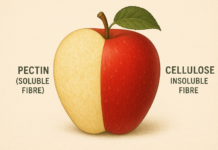Talking Periods
By Dr ‘Ola Abu Laban,
Obstetrics & Gynaecology Specialis
Periods are a natural, healthy part of your daughter’s life. Here, are frequently asked questions your daughter may ask. They will help guide your daughter through her first period.
What is menstruation?
Once puberty begins, hormones produced in your brain will signal to your ovaries to release an egg every month. At the same time, your ovaries will also produce hormones that cause the lining of your uterus to thicken and grow. The egg that is released will pass through your fallopian tubes. When it is not fertilised by a sperm cell, the uterus lining will break down and bleed, and it will flow out of the uterus through the vagina. This is called a menstrual period.
When will I get my first period?
Menstruation usually begins between the ages of 12 and 14 but can start earlier or later.
How often will I have a period and how long will they last?
Periods typically come every 21 to 35 days, but they are often not regular at first. You may have two periods in one month or miss a period. This is all normal and it may take you up to five years to develop a regular cycle. Periods usually last between two to seven days. They may last longer or be shorter when you first start menstruating and this is also normal.
What is the difference between a pad and a tampon?
• Pads (sanitary napkins) are rectangles of absorbent material that stick to the inside of your underwear. Some pads have ‘wings’ that fold over the edges of your underwear to prevent leakage and to hold the pad in place. Pads absorb menstrual blood after it leaves the vagina.
• Tampons are also made of absorbent material but are in a cylindrical shape. They are inserted into the vagina and absorb menstrual blood before leaving the body. Some tampons come with applicators, and all tampons come with an attached string to make removal easier and safer.
Should I use a pad or a tampon?
Many girls choose to start out using pads but may want to use tampons when swimming or doing sports.
Will I lose my virginity if I use a tampon?
The simple answer is no. But this is a complicated question that is actually asking about two separate issues. The first is “what makes a girl a virgin”. You might get different answers to this question. The technical definition is someone who has not had sexual intercourse where a man’s penis enters and penetrates her vagina. However, this raises a second question about the hymen and its relation to virginity.
The hymen is a thin membrane that stretches across the opening of the vagina. This membrane does not usually cover the entire opening of the vagina. By the time a girl reaches puberty, there is enough space to allow menstrual blood to pass and the hymen tissue is thin enough to allow for the safe use of tampons. The hymen has been looked at as the mark of virginity in many cultures. In some cases, when a virgin who has an intact hymen has sexual intercourse for the first time, the hymen will tear and bleed. This, however, is not always the case, as many girls actually do not bleed. Tampons can damage the hymen, so it’s best to discuss options with your gynaecologist.
How often should I change my pad or tampon?
At least every four to eight hours. You may need to change it more often on the first days of your period because your flow may be heavier. It is especially important to change your tampons frequently because toxic bacteria can grow on the tampon and cause you to become very ill.
Do menstrual periods cause discomfort?
Some girls have cramps (tightness and pain) in the lower abdomen and back at the start of their periods. Some girls get headaches or feel dizzy and some get diarrhoea.
What can I do to relieve cramps?
To help ease cramps, you can try the following:
• Exercising regularly
• Placing a heating pad on your abdomen or lower back
• Taking ibuprofen or naproxen sodium (if you do not have an allergy to aspirin or severe asthma)
What problems regarding my menstrual period should I see the gynaecologist about?
Speak to your doctor or us, your parents, about your period for any of these reasons:
• You are 15 years old and have not had a period
• Your periods were regular each month and then they stopped being regular
• Your period comes more often than every 21 days or less often than every 35 days
• Your periods last more than seven days
• Your periods are so heavy that you have to change pads or tampons often (more than once every one to two hours)
• You have bad cramps that keep you from doing your regular activities and pain relievers do not help
You can contact Abu Laban at [email protected]






